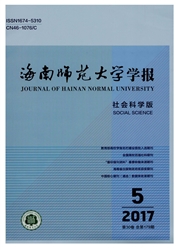

 中文摘要:
中文摘要:
吕澂先生治佛学的旨趣归宗于法相唯识,其唯识学思想路径概括为八个字,即:正本清源、返本开新。"正学",反映了吕澂从"教理行证"的范畴论出发,在唯识学视域下对佛学基本概念进行界定判别、剖析辨明。"清源",揭示了吕澂探究唯识学与印度佛学的律动性,他积极搜索出唯识学与小乘佛学、大乘般若学、大乘如来藏学的线索。"返本",探讨了吕澂对唯识学与中国佛学关系的简别,通过"返本还源"的手法,对中国佛学"性觉"说进行批判,并把中国佛学的源头活水统统引到唯识学上来。"开新",强调了吕澂致力于把唯识学义理扩延到佛教人间化的实践中去,是吕氏"转依"、"革新"思维向度的最终聚焦点所在。
 英文摘要:
英文摘要:
Lü Cheng' s Buddhist cittamatrin thought can be summarized in eight characters, namely, thorough overhaul and fresh start by restoring to its origin. As is implied by "authentic learning", Lü Cheng has striven to define and distinguish basic concepts of Buddhism in the context of the basic cittamatrin doctrine based on the cate- gory theory of "verifying the dogmata". The " restoration of its origin" shows how Lti Cheng has studied the affinity between cittamatrin learning and Indian Buddhism, for he has actively explored the link between cittamatrin and Hinayana, Mahayana prajna and Mahayana Tathagatagarbha. With respect to "returning to its origin", Lti Cheng has explained the relationship between cittamatrin learning and Buddhism in China. He criticizes the original en- lightenment of Tendai, Kegon and Chan Buddhism so as to introduce the source of all Chinese Buddhism to citta- matrin philosophy. In terms of "innovation", the application of the cittamatrin theory by Lu Cheng in the practice of Buddhism secularization is highlighted, which is an ultimate focal point of "transformation" and "revolution" in his thought.
 同期刊论文项目
同期刊论文项目
 同项目期刊论文
同项目期刊论文
 期刊信息
期刊信息
